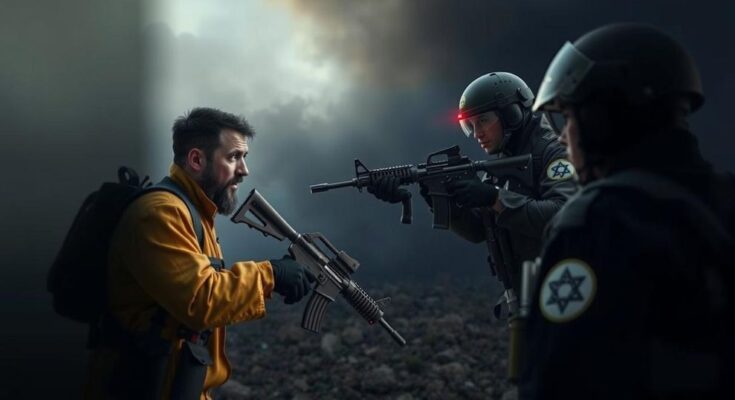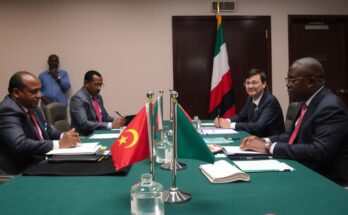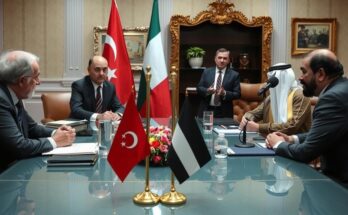Hezbollah and Israel have accused each other of violating a recently initiated ceasefire, while Israeli strikes in Gaza have resulted in at least 21 Palestinian deaths. The Lebanese military is positioned in the south as tensions persist, along with Israeli warnings to civilians. Political complications regarding the International Criminal Court are also emerging amidst these conflicts.
On Thursday, Hezbollah and Israel exchanged accusations concerning the violation of a ceasefire that had commenced just 24 hours prior. Hezbollah alleged that Israeli forces targeted civilians while Israel responded by noting the presence of suspects in restricted zones in southern Lebanon. In parallel, fresh Israeli aerial strikes in Gaza resulted in an increase in the death toll, with medical sources reporting at least 21 Palestinian fatalities due to intensified military operations. While Hezbollah MP Hassan Fadlallah condemned Israeli assaults on civilians as breaches of the ceasefire, Israeli officials asserted ongoing violations by Hezbollah. The Lebanese military is deploying troops in southern Lebanon as the ceasefire appears to hold, despite Israeli warnings to residents about returning to their homes in demarcated zones. Amidst the conflict, the Israeli Foreign Minister has remarked on possible repercussions for the International Criminal Court (ICC) in light of issued arrest warrants against Israeli officials, signaling ongoing tensions across the region. The situation remains fluid, with developments in military actions and political strategies surfacing regularly.
The recent hostilities between Hezbollah and Israel stem from long-standing tensions that have periodically escalated into military confrontations. The ceasefire represents a temporary halt in these escalations; however, violations from both sides have raised concerns about the sustainability of peace efforts in the region. The conflict is further complicated by the situation in Gaza, where renewed Israeli strikes have drawn international attention and condemnation. The involvement of the International Criminal Court and ongoing political maneuvering adds layers to the conflict, making future resolutions challenging.
In conclusion, the situation between Hezbollah and Israel continues to be precarious as both parties blame each other for ceasefire violations. The increase in violence in Gaza has also significantly affected the humanitarian situation, complicating diplomatic efforts. The Lebanese military is attempting to stabilize the situation by deploying troops, but warnings from Israeli authorities about civilian safety highlight the ongoing risks. The broader geopolitical implications, particularly regarding international bodies like the ICC, will likely influence future developments in the Middle East.
Original Source: www.france24.com




